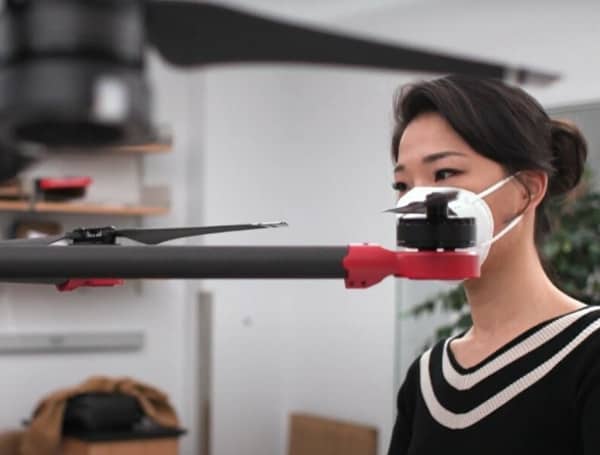Dana Choi grew up in South Korea but considers Florida her second home.
She spent several years on the main campus of the University of Florida, getting her master’s and doctoral degrees in agricultural and biological engineering from the UF/IFAS College of Agricultural and Life Sciences (CALS).
“Graduate school was the best time of my life,” she said. “It’s a good college, good department, best advisor (Daniel Lee) and nice weather. It became really a great memory of mine, so it was an easy decision for me to come back to UF/IFAS.”
After earning her Ph.D. in 2017, Choi spent four years as an assistant professor of agricultural engineering at Penn State University, where she used artificial intelligence to help apple farmers move toward more financially and environmentally sustainable agriculture.

CREDIT: Courtesy, Penn State University.
Last month, Choi returned to UF, also as an assistant professor. She is just starting her artificial intelligence research and outreach at the UF/IFAS Gulf Coast Research and Education Center (GCREC).
Her journey to UF/IFAS started in South Korea. Born in Pyeongtaek — a suburb of Seoul — Choi went to primary, middle, high school and college in her homeland. In Pyeongtaek, you’ll find a mixture of agriculture and industry, and Choi grew up with some agricultural roots. Her grandparents used to be farmers, and her parents still own a rice farm, although they no longer do any of the farming themselves.
As a child, she liked math and physics, but she wasn’t sure she wanted to pursue engineering as a career. All her classmates wanted to be teachers.
“So, I was confused a little bit at that time,” Choi said. “I double-majored in mechatronics and economics because I did not know what I liked more. But as I studied in college, I realized that I like engineering and wanted to study more. So, I came to study at the UF/IFAS College of Agricultural and Life Sciences (CALS), and this is the best decision that I have ever made in my life.”
Now that she’s at GCREC, Choi will be using AI to help attenuate labor and environmental issues with all sorts of crops. She’s starting with strawberries and tomatoes because those are the most prevalent crops in west-central Florida.
Through her Extension program, Choi is also doing outreach, already talking extensively with farmers to find out their concerns and how she can help address them.
“I value working closely with growers and directly communicating with them,” she said. “This often inspires my research topics.”
Working at a research and education center also offers unique opportunities. For instance, you can look outside your office or lab and see strawberries and tomatoes growing. She feels fortunate to be able to occasionally eat fruits and vegetables produced at the center.
“I am really grateful for this research and education center environment. I dream almost every day what research projects I want to do in this center,” Choi said.
Currently, agriculture faces a huge new challenge: produce more food on fewer acres, while minimizing environmental impacts and dealing with a shrinking labor force and resources.
“My research focuses on developing intelligent systems to improve the capacity of field robots and precision agriculture practices to ease the labor and environmental issues,” Choi said. “We ask such questions as, ‘Do farmers and growers have enough economic incentives to adopt this technology?’ This question has required my research to maximize leverage from low-cost, but effective devices through AI and robotics.”
Visit Tampafp.com for Politics, Tampa Area Local News, Sports, and National Headlines. Support journalism by clicking here to our GoFundMe or sign up for our free newsletter by clicking here.
Android Users, Click Here To Download The Free Press App And Never Miss A Story. Follow Us On Facebook Here Or Twitter Here.


